Cartagena Itinerary: Top Sites to See in 24 Hours
Cartagena de Indias is one of the most visited cities in Colombia for its romantic atmosphere and wonderfully preserved Old Town. If you only have one day in Cartegena, there's still plenty to see. Our local insider Jacquit takes you beyond the city walls to explore Getsemaní and Bocagrande.
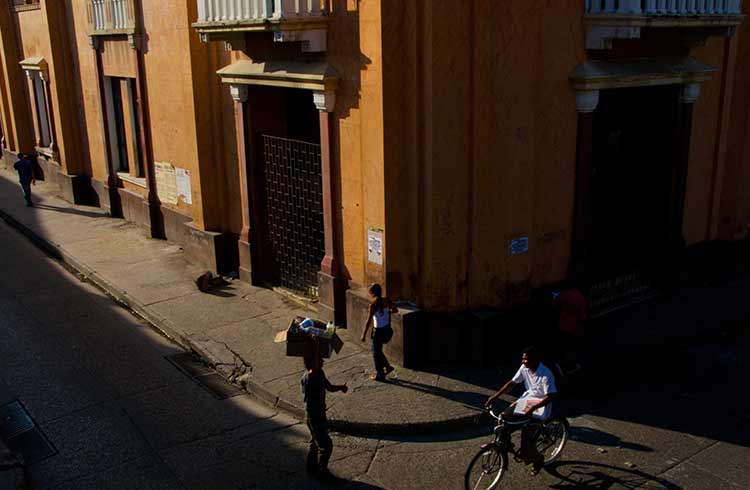 Photo © Gregg Bleakney
Photo © Gregg Bleakney
- Enjoy the views from Cerro de la Popa
- Take a self-guided of San Felipe Castle
- Experience urban authenticity in Getsemaní
- Stop by India Catalina Monument
- Soak up the romance of Cartagena's Old Town
- See the city's modern side in Bocagrande
- End the day with a tropical sunset
Enjoy the views from Cerro de la Popa
Start the day with a taxi drive up to Cerro de la Popa, the 150m (492 ft) hill lying to the east of the city.
While the driver waits, spend time appreciating the high-flying views of Cartagena and the Caribbean Sea.
The 400-year old convent, Convento de Nuestra Señora de la Candelaria is open, for a fee, to the public.
On the way up/down, the contrasting faces of the city are revealed, as is the unfortunate inequality that exists between social classes.
Take a self-guided tour of San Felipe Castle
Next stop, colonial Spain’s most impressive work of strategic military architecture, the Castillo San Felipe de Barajas.
Skip the guided tour and take a self-guided audio tour of the citadel.
Spend a few hours exploring the complex network of tunnels; admiring the impenetrable walls and the once oh-so-powerful cannons.
It gets extremely hot up there, so bring a hat and lots of water.
Experience urban authenticity in Getsemaní
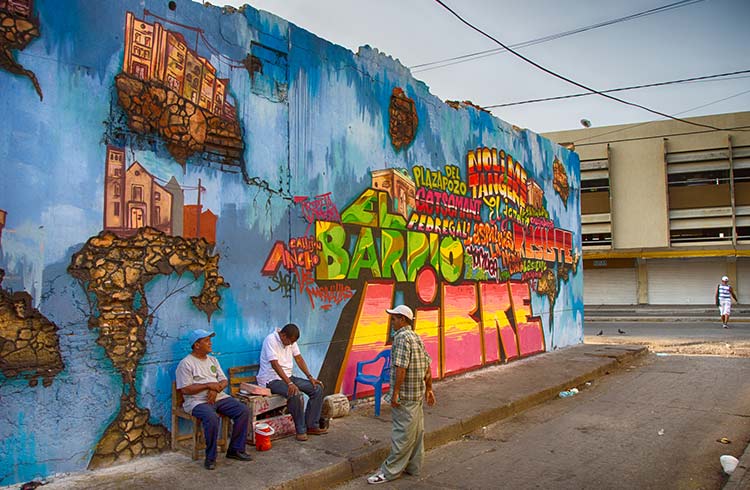
Exiting the castle to your left, take the main road and walk towards Getsemaní.
The former slave quarter has transformed into Cartagena’s most charming and authentic neighborhood, with dozens of cafes, bars, and hotels.
Take a slow stroll, drink a coffee and don’t miss the fantastic, ever-expanding collection of urban street art that covers the walls of Calle de La Sierpe; creatively illustrating life in this diverse city. If you're into travel and street photography, you'll definitely want to spend some time here.
Stop by India Catalina Monument
Leave Getsemaní and walk 10min northeast towards the India Catalina Monument.
The park is dedicated to an indigenous woman, who, after being kidnapped by the Spanish, acted as an interpreter and mediator between the Spanish and the local tribes.
Soak up the romance of Cartagena's Old Town
Stop for a selfie at the Clock Tower before you enter the walled city, which will make Gabriel García Márquez’s fans weep with joy (you can pass his former dwellings, Casa Gabriel García Márquez).
Before getting romantically lost in the maze of colonial alleyways, plazas, and street performances, get energized by buying a couple of typical sweets from the brightly dressed ladies in the Portal de los Dulces, within the Plaza de los Coches (former slave market).
Although smaller than her cousin in Bogotá, the Museo del Oro Zenú does offer a decent collection of artifacts from the Zenú Indigenous tribe.
See the city's modern side in Bocagrande
Overcome Cartagena’s stifling afternoons and rent a bicycle from the bike rental place in Parque Centenario, near the Clock Tower.
Head towards the skyscrapers that dominate the skyline of Bocagrande. Traffic can be a little bit crazy, so take care.
Alternatively, hop on a T103 Transcaribe Bus until Commercial Centre El Pueblito stop.
As this is the wealthier neighborhood, there are many shopping malls, trendy bars and restaurants, and boutique stores to stop at.
A quick dip in the sea isn’t a bad idea, too.
End the day with a tropical sunset
Ride back, or take a bus/taxi, to the Old Town and discover the city from the top of the wide 17th-century walls that were built by African slaves.
Be sure to arrive at the western-facing walls before sunset. Find a spot, buy a beer, and enjoy the sky as it shifts along a whole palette of colors.
When nighttime falls, pick a restaurant within the walls or head back to Getsamaní, where La Plaza de la Trinidad is just waking up.
Related articles
Simple and flexible travel insurance
You can buy at home or while traveling, and claim online from anywhere in the world. With 150+ adventure activities covered and 24/7 emergency assistance.
Get a quote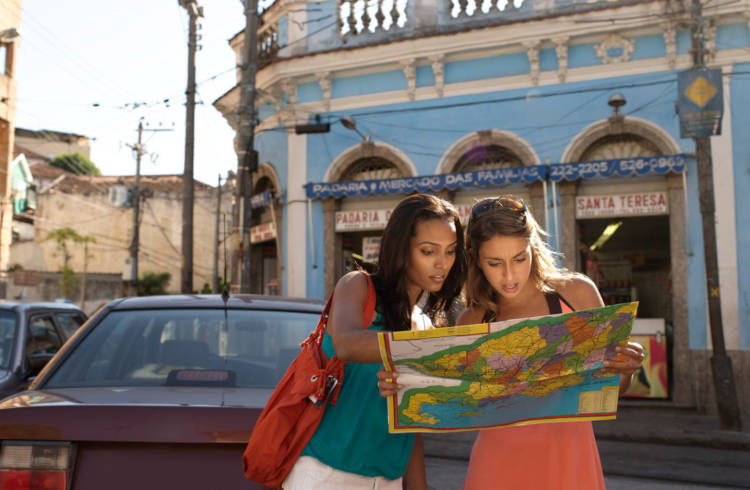
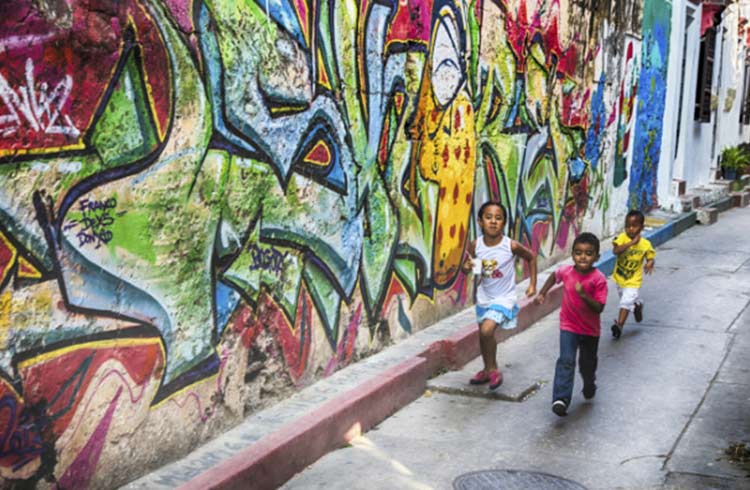
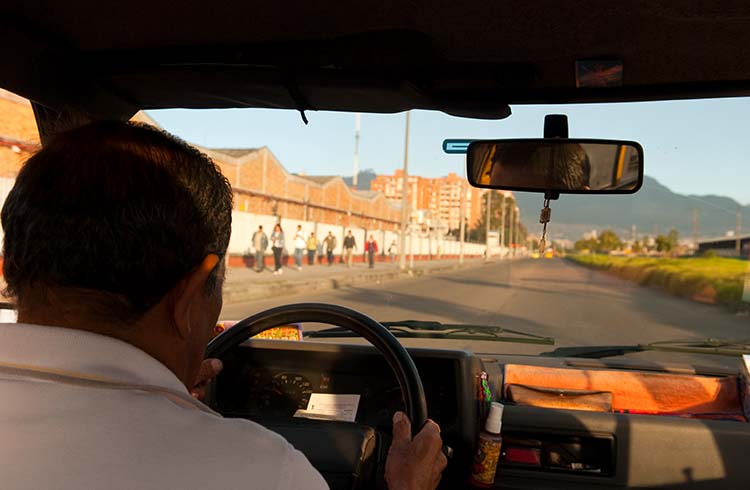
1 Comment
Stay away from old town, nothing but tourist trap type shops with garbage, constant harassment by street vendors selling more garbage and aggressive teenagers playing loud music and singing up in your space. Would never go back here.